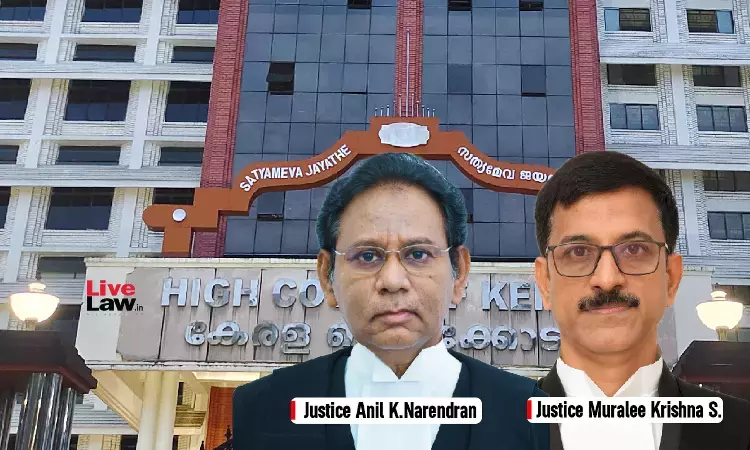- Home
- /
- High Courts
- /
- Kerala High Court
- /
- Interim Orders Affecting...
Interim Orders Affecting Substantial Rights Of Parties And Causing Prejudice Are Appealable While Writ Petition Is Pending: Kerala HC
Tellmy Jolly
3 Feb 2025 6:15 PM IST
The Kerala High Court has reiterated that interim orders that affect the substantial rights and liabilities of the parties and cause significant prejudice, are appealable during the pendency of the writ petition under Section 5(i) of the Kerala High Court Act, 1958.In the facts of the case, the Court was considering the maintainability of a writ appeal against an interim order under Section...
The Kerala High Court has reiterated that interim orders that affect the substantial rights and liabilities of the parties and cause significant prejudice, are appealable during the pendency of the writ petition under Section 5(i) of the Kerala High Court Act, 1958.
In the facts of the case, the Court was considering the maintainability of a writ appeal against an interim order under Section 5(i) of the Kerala High Court Act, 1958 during the pendency of the writ petition.
Section 5(i) states that an appeal shall lie to a Bench of two Judges from a judgment or order of a Single Judge in the exercise of original jurisdiction
The Division Bench of Justice Anil K. Narendran and Justice Muralee Krishna S. observed thus:
“The impugned interim order of the learned Single Judge is not an order merely procedural in nature. Such an order, touching upon the substantial rights and liabilities of the parties and causing substantial prejudice to the appellants, is an interim order qualified for challenge in an appeal filed under Section 5(i) of the Kerala High Court Act.”
For context, the writ petition was filed seeking declaration that the senior-most Registrar of the High Court appointed by promotion from the High Court Service is entitled to a higher grade in the scale of pay of Special Secretary to the Government as recommended by the Hon'ble the Chief Justice and by the 11th Pay Revision Commission. The writ petition also sought for an issuance of Mandamus by the Chief Secretary to accept the proposal of the Chief Justice. An interim order was also sought seeking the Chief Secretary to issue orders sanctioning higher grade of pay to the senior-most Registrar of the High Court appointed by promotion from the High Court Service.
The single judge passed an interim order in the writ petition ordering the Chief Secretary to appear before the Court if they failed to implement the Chief Justice's recommendation that the senior-most Registrar of the High Court appointed by promotion from the High Court Service is entitled to a higher grade in the scale of pay of Special Secretary to the Government.
Aggrieved by the interim order, the State has moved the Writ Appeal under Section 5 (i).
The Court noted that the Chief Secretary had filed a counter affidavit opposing the reliefs sought in the writ petition. It also noted that reply affidavit was also filed. The Court thus noted that pleadings are complete in the writ petition and the matter could be posted to final hearing.
The Court observed that the interim order sought in the writ petition, was nothing but the final relief.
The Court observed that in K.S. Das v. State of Kerala (1992), a larger bench of the high court noted that the term 'order' in Section 5 (i) also includes interim orders made by the High Court in miscellaneous petitions filed in writ petitions, as long as these orders remain in force while the writ petition is still pending. In this matter the court had held that " an appeal would lie against such orders only if the orders substantially affect or touch upon the substantial rights or liabilities of the parties or are matters of moment and cause substantial prejudice to the parties".
It noted that in Madhu Limaye v. State of Maharashtra (1977) the Supreme Court had clarified that the term 'order' is not just limited to final order which disposes a writ petition. The 'orders' should not however, be ad-interim orders in force pending the miscellaneous petition or orders merely of a procedural nature, the apex court had said.
Further, the Court referred to Thomas P.T. and another v. Bijo Thomas and others (2021), where the Division Bench observed that appeal could be filed against an interlocutory order passed in a writ petition, if such orders substantially affects the rights or liabilities of parties, or involve vital matters that could cause prejudice to parties.
In the facts of the case, the Court stated that the appellants cannot be directed to implement the recommendation of the Chief Justice by way of an interim order. The Court thus set aside the interim order in the writ petition and stated that the matter could be posted for final hearing at the instance of the petitioner as the pleadings are complete.
Case Title: State of Kerala v Pradeepkumar A.V
Case No: WA NO.77 OF 2025
Citation: 2025 LiveLaw (Ker) 75
Click here to Read/Download Order



